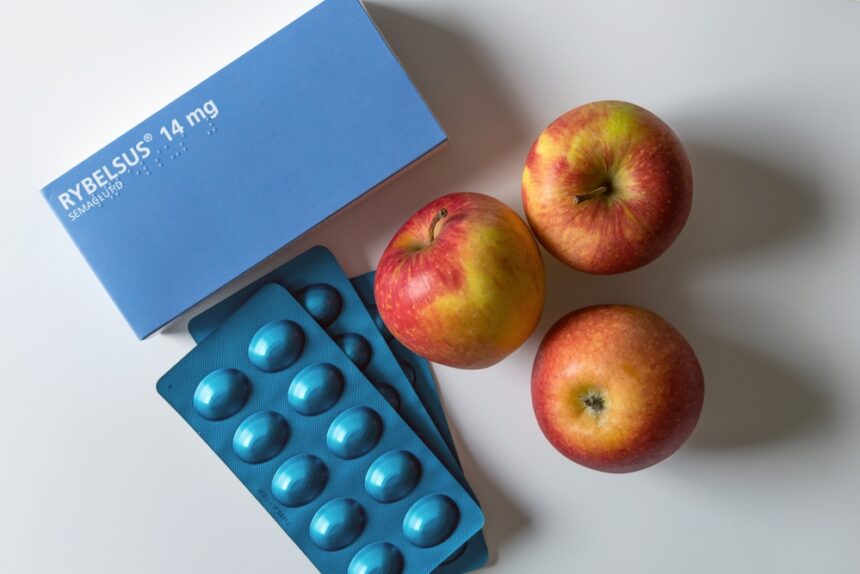We have talked about some of the risks of using prescription medications. One of the concerns is side effects. This is true when taking drugs like Rybelsus.
Living with type 2 diabetes requires individuals to navigate a complex landscape of medications and treatments to manage their condition effectively. Rybelsus, a popular oral medication, has emerged as a promising option for improving glycemic control. However, like any medication, Rybelsus may come with potential side effects. In this article, we will explore the journey to relief and discuss whether Rybelsus side effects eventually fade away.
Understanding Rybelsus:
Rybelsus, also known as semaglutide, belongs to a class of medications called GLP-1 receptor agonists. It works by stimulating the release of insulin, reducing glucagon secretion, and slowing down the emptying of the stomach. These actions help regulate blood sugar levels in people with type 2 diabetes.
Common Side Effects of Rybelsus:
High blood sugar can lead to diabetic emergencies if not controlled. While Rybelsus can effectively lower blood sugar levels, it is essential to be aware of its potential side effects. Some common side effects reported by individuals taking Rybelsus include:
- Nausea: One of the most frequently reported side effects of Rybelsus is nausea. This can occur when starting the medication and may subside over time as the body adjusts.
- Diarrhea: Some individuals may experience episodes of diarrhea while taking Rybelsus. It is important to stay hydrated and consult a healthcare professional if the symptoms persist.
- Abdominal discomfort: Mild abdominal discomfort or pain may occur as a side effect of Rybelsus. This typically resolves on its own or with over-the-counter remedies.
- Loss of appetite: Rybelsus can sometimes lead to a decreased appetite, which may affect overall calorie intake. It is important to maintain a balanced diet and consult a healthcare professional for guidance.
- Hypoglycemia: While Rybelsus is not known to cause hypoglycemia on its own, combining it with other diabetes medications or excessive alcohol consumption may increase the risk. It is crucial to monitor blood sugar levels and seek medical attention if hypoglycemic episodes occur.
Managing Rybelsus Side Effects:
If you also want to know; do rybelsus side effects go away, it is essential to communicate them with your healthcare provider. They can provide guidance on managing these side effects and determine if any adjustments to your treatment plan are necessary. Here are some general tips for managing Rybelsus side effects:
- Start with a low dose: Your healthcare provider may recommend starting with a lower dose of Rybelsus and gradually increasing it to minimize side effects.
- Take with food: Taking Rybelsus with a meal can help reduce the likelihood of experiencing nausea or gastrointestinal discomfort.
- Stay hydrated: Drinking plenty of water throughout the day can help alleviate symptoms like diarrhea and maintain overall hydration.
- Follow a balanced diet: Eating regular, well-balanced meals can help mitigate appetite changes and support overall health.
- Monitor blood sugar levels: Regularly monitoring your blood sugar levels can help ensure they stay within the target range and minimize the risk of hypoglycemia.
- Open communication with your healthcare provider: Keeping your healthcare provider informed about any side effects you experience is crucial for them to provide appropriate guidance and support.
Do Rybelsus Side Effects Fade Away?
The duration of Rybelsus side effects can vary from person to person. Some individuals may experience side effects for a short period, while others may notice them persisting over time. It is important to remember that everyone’s response to medication is unique.
In many cases, as your body adjusts to Rybelsus, the occurrence and severity of side effects may decrease. Nausea, for example, is a common side effect that often improves after the initial weeks of treatment. However, if side effects persist or become bothersome, it is crucial to consult your healthcare provider for further evaluation and potential adjustments to your treatment plan.
Conclusion:
Rybelsus can be an effective medication for managing blood sugar levels in individuals with type 2 diabetes. While it may come with potential side effects, these can often be managed with proper communication, lifestyle adjustments, and support from healthcare providers. If you are considering or currently taking Rybelsus, it is important to have open discussions with your healthcare provider to ensure optimal management of your diabetes and minimize the impact of any side effects. Remember, your healthcare provider is the best resource for personalized guidance and support.









